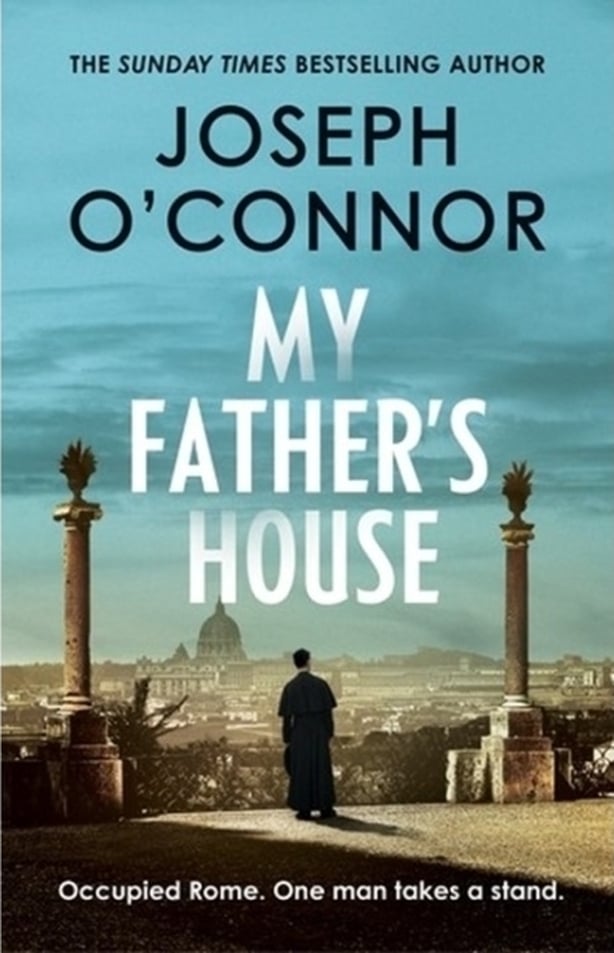In September 1943 the Vatican City stands as a bastion of neutrality in occupied Rome. Nazi control, lasting nine months, ushers in a period of increased fear, restriction, and persecution. For Irish priest Monsignor Hugh O'Flaherty, inaction is not an option. He forms a "choir" of individuals eager to assist. Under the guise of rehearsals, the group devise plans to aid the regime's victims through the Escape Line. Divided into three acts, plus a coda, this performance tells the story of the choir's bravery in the face of Nazi oppression.
Joseph O'Connor's evocative style is a time machine. To read this novel is to stand on the streets of Nazi Rome, to feel the everyday fear, and to suffer the hunger. Memories of the good old days haunt the cast of characters with the glamour of the opera and ambassadorial parties removed from the seemingly impossible reality before them. A sinister vision of the Eternal City is conjured from the very first page, with the novel thriving on suspense as it counts down to the choir's Rendimento, or mission, on Christmas Eve.
We need your consent to load this rte-player contentWe use rte-player to manage extra content that can set cookies on your device and collect data about your activity. Please review their details and accept them to load the content.Manage Preferences
Listen: Joseph O'Connor talks My Father's House with Ryan Tubridy
Slowly, the choir's purpose is revealed through a series of fictionalised documents, inspired by the true story. BBC interviews and unpublished memoirs, among other sources, are interwoven with the main plot, allowing O'Connor to expertly manoeuvre between the various voices and world views of his characters. Every character is clever, reflective, or wise cracking, making them an entertaining host of narrators who speak with the benefit of hindsight. Occasionally, they stray into the territory of caricature, but generally My Father's House is a strong study in characterisation where one line can epitomise a great deal. Delia Kiernan has been told by her doctors not to smoke. When we meet her, she is smoking.
No choir is quite complete without its conductor. Monsignor Hugh O'Flaherty. Golf. Ugo. Hughdini. A man of many names, this enigmatic Irish priest with boundless compassion is the truest focus of O'Connor's work and research. The testimonials provided by his friends allow his heroic tale to be told, all while preserving the man's humility.
Watch: Joseph O'Connor reads from My Father's House
But what is a hero without their villain? Enter Paul Hauptmann, the local Gestapo boss. The depiction of the sadistic leader, who remains a doting father at home, is chilling. He must destroy the Escape Line, or risk losing more than just his position and power. One Irish priest, tucked behind the borders of the Vatican, is Hauptmann's prime suspect.
This novel might entice the reader into a sense of smug intelligence with its lesser-known World War Two niche and its littering of high culture literary and musical references. For a number of characters, the well-educated and well-to-do, quoting John Donne and George Orwell sounds comfortable in their voices. Alas, two Shakespeare quotes in less than ten pages is likely too much for even the more pretentiously inclined amongst us. This oversaturation of quotation risks breaking the spell of an otherwise immersive and crafted tale.
In short, My Father's House is a story of individual courage and resourcefulness in defiance of cruel injustices, bound in O'Connor's vivid and accomplished style.
It is simply an irresistible work of historical fiction.

My Father's House is published by Harvill Secker


